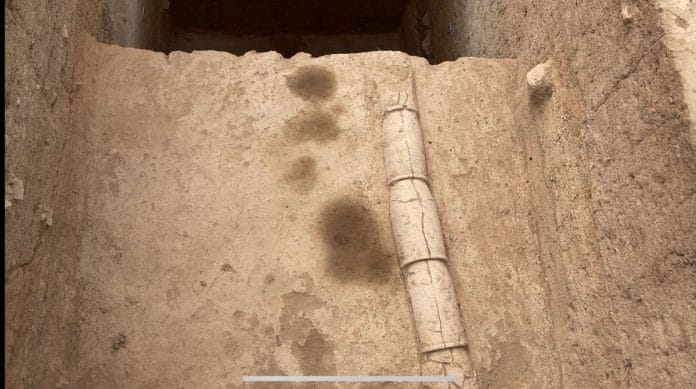New Delhi: The Archaeological Survey of India (ASI) is planning to publish the controversial Keezhadi excavation report by archaeologist Amarnath Ramkrishnaon on its website, ThePrint has learnt.
The 982-page report, submitted in January 2023, on Tamil Nadu archeological site Keezhadi by Ramkrishna has seen a lot of controversy, with the ASI asking for ‘additions and corrections’ and the archeologist refusing. The matter escalated to Parliament, with Tamil Nadu Chief Minister M.K. Stalin accusing the Centre of trying to diminish the importance of Tamil heritage.
“We are planning to publish the report submitted by archaeologist Amarnath Ramkrishna on our website. The report will be in soft copy form. It will include questions raised by domain experts at the end,” Nandini Bhattacharya Sahu, joint director general (monument) and ASI spokesperson told ThePrint.
This will not be the final version of the report, she added.
The ASI spokesperson further said: “We want to publish it. No one in the ASI wants to hold the report as it requires a lot of hard work. But in the ASI, a set of procedures has been followed before publishing the report, which is a must.”
Ramkrishna’s report classified Keezhadi into three periods: Pre-Early Historic (8th century BCE to 5th century BCE), Mature Early Historic (5th century BCE to 1st century BCE), and Post-Early Historic (1st century BCE to 3rd century CE).
But according to Union Culture Minister Gajendra Shekhawat in Parliament, as per the experts’ suggestions, the nomenclatures of the three periods require change and the time bracket of the 8th century BCE to 5th century BCE given for period I is not justified at all.
He also said that in the report, some details were missing—a village map that needs to be redrawn, a contour map, and images of graffiti.
Keezhadi, near Madurai, has yielded significant archaeological findings, including evidence of a well-planned urban settlement dating back to the 8th century BCE, potentially older than previously believed.
Excavations have unearthed artefacts such as pottery with Tamil Brahmi inscriptions, a literate society, and evidence of an urban planning system.
Accusations of political interference
In May, the ASI responded to the Tamil Nadu government’s accusations of political interference and attempts to suppress Tamil heritage, stating: “The Archaeological Survey of India regularly publishes the reports of sites excavated under the aegis of Director General, ASI. Great emphasis is given to this aspect, since much time, energy and money is spent on every excavation work and the basic purpose of the excavation work otherwise, remains unfulfilled.”
According to ASI, following procedure, the Keezhadi report was sent for the vetting to experts. The experts’ suggestions were communicated to Ramkrishna, but he refused to make any changes.
In June, Culture Minister Gajendra Singh Shekhawat said the report requires further scientific validation before it is given official recognition.
On 21 July, the Modi government told Parliament that the ASI was fully committed to following the law and due scientific process for releasing the accurate findings based on the excavation at Keezhadi.
On 7 August, actor and Rajya Sabha MP Kamal Haasan met PM Modi and requested that the recognition of Keezhadi’s antiquity be expedited. “As a representative of the people of Tamil Nadu and as an artist, I placed before him a few requests, foremost among them was the call to expedite the recognition of Keezhadi’s antiquity,” Kamal Haasan posted on X.
(Edited by Viny Mishra)
Also read: Keezhadi excavation report under review—Centre on ASI’s tussle with archeologist







Why are you calling old Tamil scripts as Tamil brahmi call as Tamizhi. Tamil is self developed language before BC and not depend on any other language.
Any doubts in the report has to be dealt with, as per proper process and professional integrity and do re excavation and validate the period classification.
But ASI is against reexcavations and just want’s to edit the report and close it. How’s that archaeological and scientific? Is it scientific to just demand that the data be modified to match their religious propoganda? Still it’s name is ASI. Joke.
ThePrint’s framing is deliberately misleading — ASI demanding “additions and corrections” is not some neutral housekeeping. Only the actual excavation team can determine findings; you can’t just “change numbers” from an office in Delhi. Amarnath Ramakrishna never “refused” corrections — he made it clear that if numbers are to be re-validated, it can only be through fresh excavations, not desk edits that undermine the science.